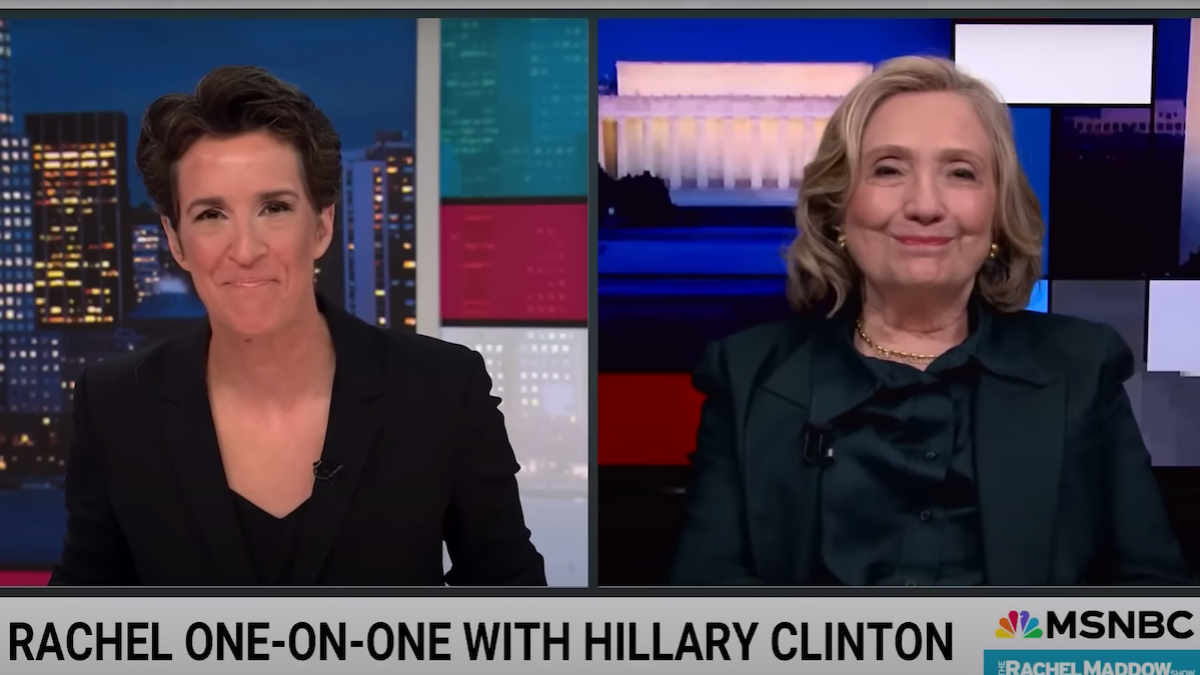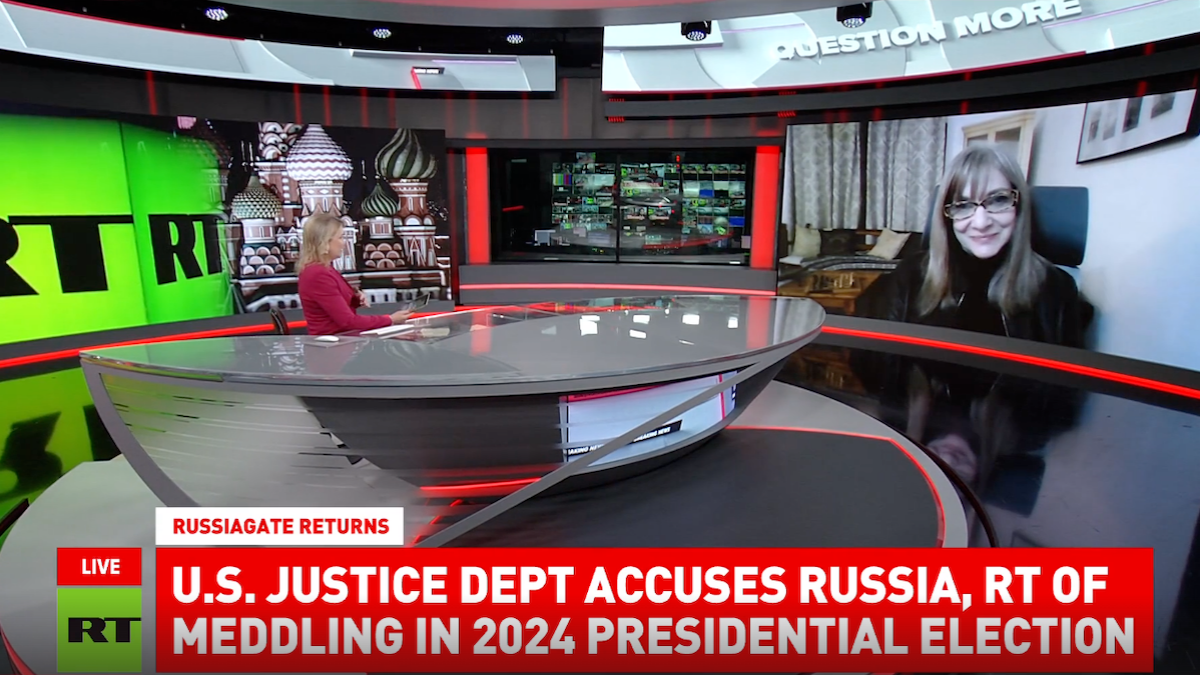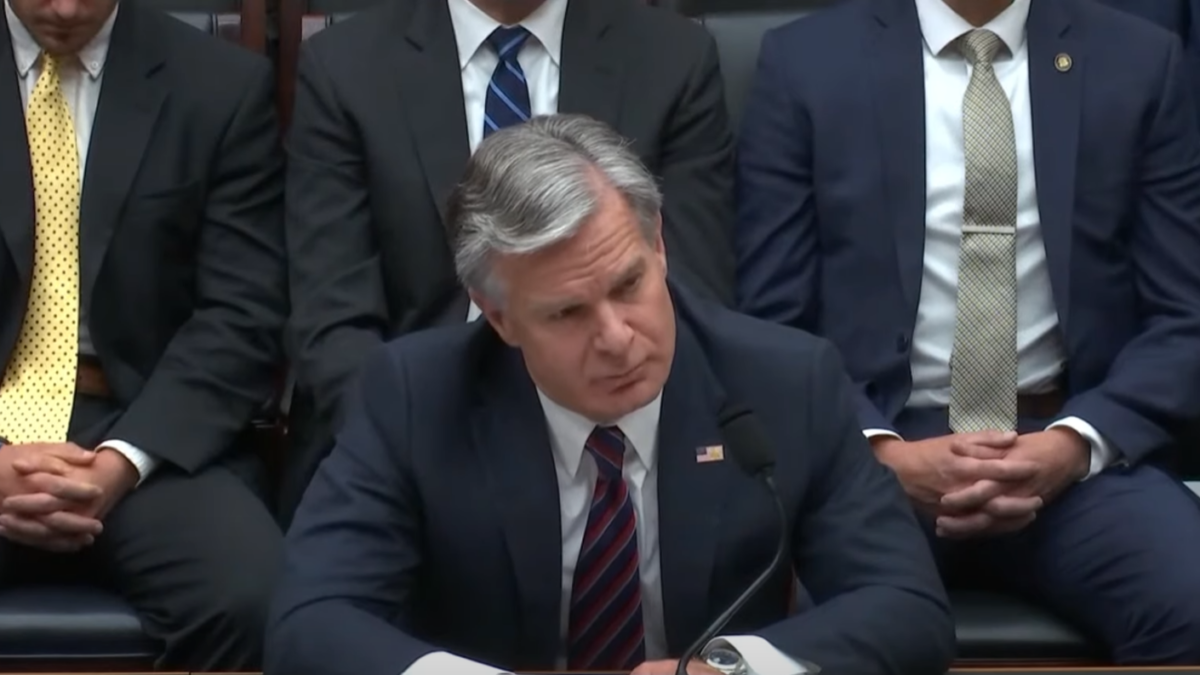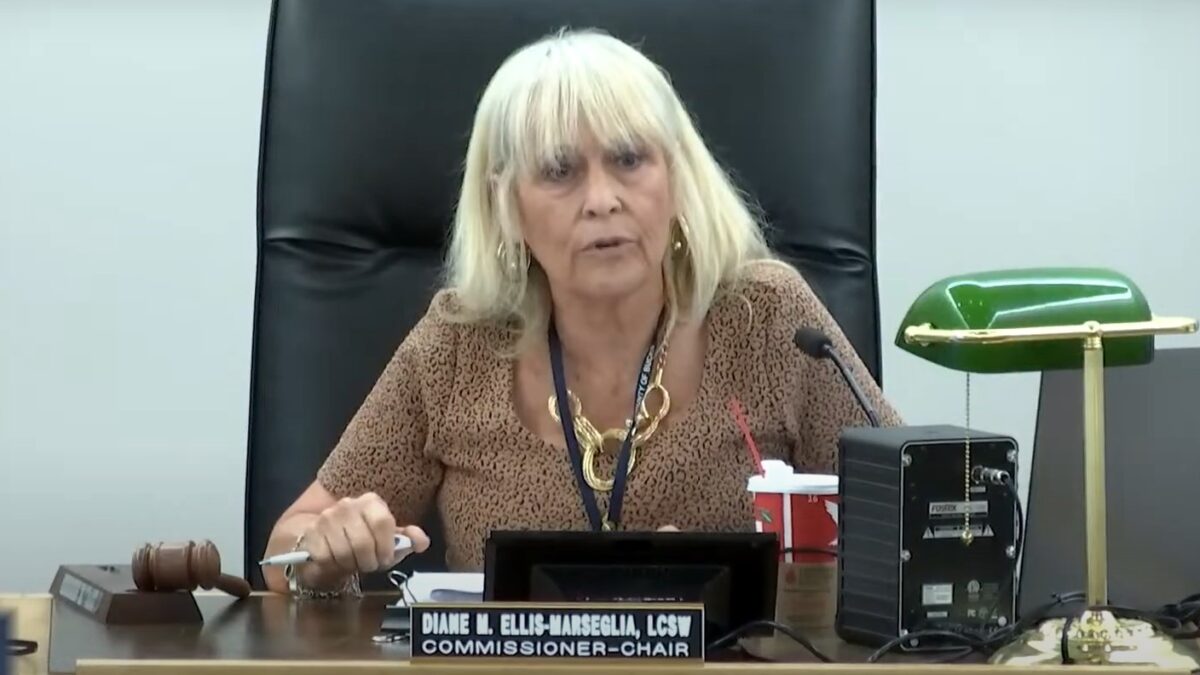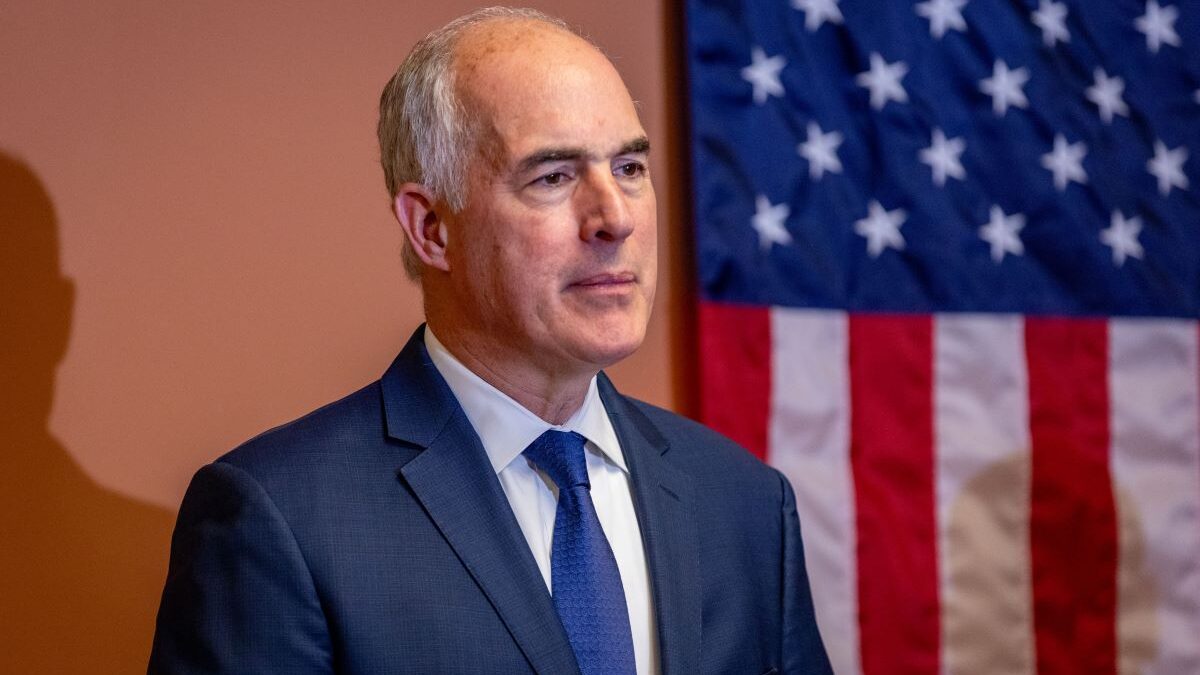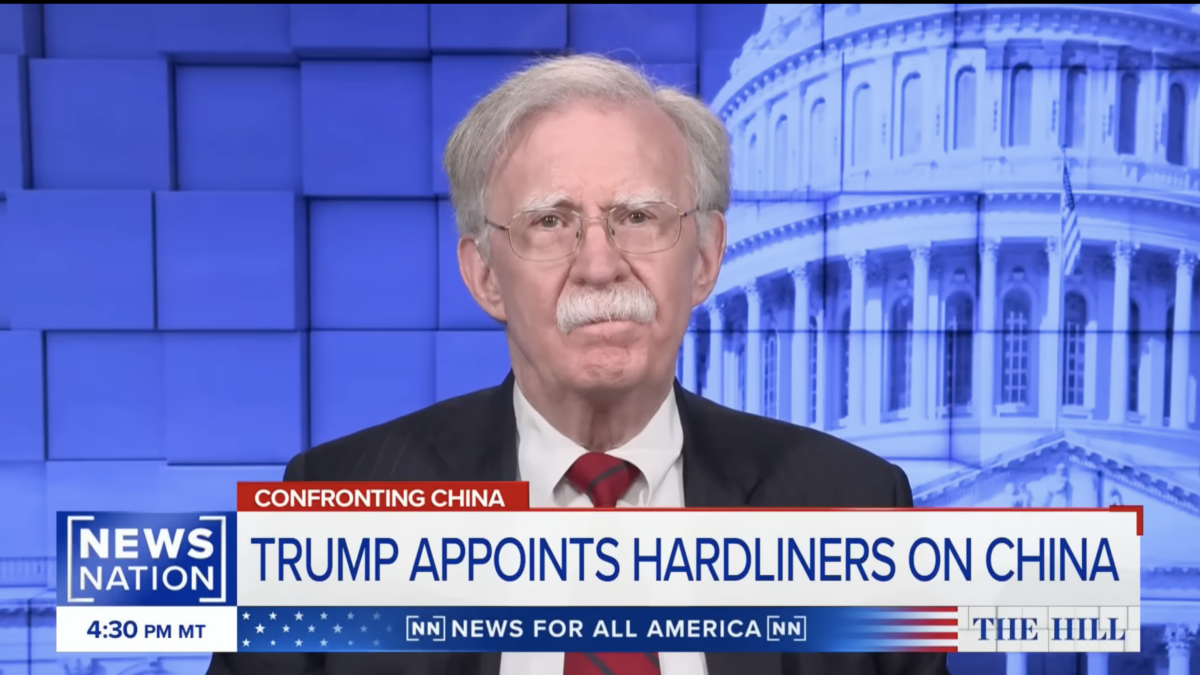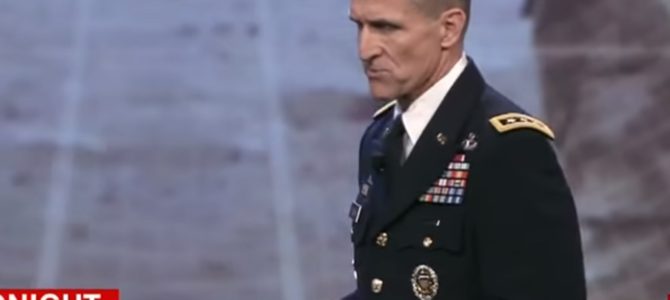
“You are asking my client to lie,” Michael Flynn’s new defense attorney Sidney Powell charged in a contentious June meeting with federal prosecutors. Flynn would continue to cooperate with prosecutors, Powell stressed, but he could not provide the testimony the government sought at the July trial of Flynn Intel Group (FIG) co-founder Bijan Rafiekian, “because it is not true.”
Soon after, the government filed a motion in Rafiekian’s case, branding Flynn a co-conspirator and informing the court that Flynn would no longer testify against his former business partner. While federal prosecutors are reticent to explain how Flynn went from being a star witness to complicit in the crimes with which they charged Rafiekian, a scouring of the court records reveals the genesis of the falling-out. It also suggests that, in the escalating dispute between the government attorneys and Flynn’s new lawyer, Powell has the better argument.
Let’s Start With Some Background
To understand these recent developments requires a synopsis of Flynn’s and Rafiekian’s cases, as well as the underlying facts and allegations. A recent pre-trial ruling in Rafiekian’s case laid out the basics: Rafiekian and Flynn co-founded and co-owned FIG. Among other business deals, FIG entered an agreement in summer 2016 to perform work for an entity named Inovo.
Rafiekian’s co-defendant, a dual Turkish-Dutch citizen, Kamil Ekim Alptekin, formed Inovo in the Netherlands. But, according to federal prosecutors, Alptekin and Inovo were merely puppets of the Turkish government.
Specifically, the government maintains that Turkey, through Alptekin, paid FIG to complete a project to “discredit and delegitimize” “Fethullah Gulen, a Turkish imam, writer, and political figure residing in the United States.” According to the indictment, Turkey believed Gulen had plotted to overthrow the Turkish government, “and has formally and openly sought his extradition from the United States government, particularly after a failed July 2016 coup d’état attempt in Turkey, which the Turkish government maintained he had orchestrated.”
The U.S. attorney’s office in the Eastern District of Virginia charged Rafiekian and Alptekin—the latter of whom is a fugitive believed to be Turkey—after Special Counsel Robert Mueller referred an investigation into the duo to the National Security Division, which in turn passed it off to the Virginia office. The special counsel probe had hit upon Rafiekian and Alptekin because Acting Attorney General Rod Rosenstein had authorized Mueller to investigate (among other things), “possible criminal conduct by Michael Flynn in acting as an unregistered agent for the Government of Turkey.”
While the special counsel’s office handled Flynn’s prosecution in the D.C. district court, a few months after Flynn pleaded guilty on December 1, 2017, to making false statements to the FBI about his contacts with the Russian ambassador to the United States, Mueller relinquished control of the investigation into Rafiekian and Alptekin. Consequently, when Rafiekian and Alptekin were eventually charged, the U.S. attorney’s office in the Eastern District of Virginia obtained the indictment.
Until Now, Flynn Wasn’t Charged In This Case
The indictment charged Rafiekian with conspiring with Alptekin and others (unnamed in the indictment) to act as an agent of the Turkish government without prior notification to the attorney general and conspiring to file a material false Foreign Agents Registration Act (FARA) statement. A second count charged Rafiekian with “knowingly acting and causing others to act in the United States as agents of the Turkish government without prior notification to the Attorney General.”
Significantly, Flynn was not charged in the E.D. of Virginia case, nor was he named in the indictment as an unindicted co-conspirator. As recently as June 13, 2019, in response to a question from the bench concerning whether the government was alleging that Flynn was part of the conspiracy, and the assistant U.S. attorney (AUSA) handling the case unequivocally stated, “We are not, Your Honor,” adding that “there will certainly be testimony from General Flynn. And from that testimony, the jury could draw a reasonable inference that there was a conspiracy, but we do not content that General Flynn was a part of that conspiracy.”
The special counsel also did not charge Flynn in the D.C. District Court with any crimes related to FARA. Rather, Muller’s team charged the former national security director with making false statements to the FBI concerning his conversations with the Russian ambassador. It was to that charge—not a FARA charge—that Flynn pleaded guilty on December 1, 2017.
Flynn Pled Guilty to False Statements to the FBI
In pleading guilty to making false statements to the FBI, Flynn also stated that the facts contained in the Statement of Offense the special counsel had drafted were “true and accurate.” Court rules require federal prosecutors to provide a Statement of Offense to show sufficient facts exist that the defendant committed the offense to which he is pleading guilty.
The Statement of Offense filed in the criminal case against Flynn detailed the various false statements Flynn made when the FBI interviewed him about his conversations with the Russian ambassador, and stated that “in truth and in fact, however, Flynn then and there knew that the following had occurred…” The statement of offense then listed the content of Flynn’s actual conversations with the Russian ambassador.
Although Flynn had not been charged with any FARA violations, in addition to detailing facts related to Flynn’s false statements to the FBI, the Statement of Offense summarized “other false statements” Flynn made. That portion of the Statement of Offense noted that on March 7, 2017, Flynn filed multiple documents with the Department of Justice pursuant to FARA “pertaining to a project performed by him and his company, the Flynn Intel Group, Inc. (‘FIG’), for the principal benefit of the Republic of Turkey (‘Turkey project’).”
Flynn acknowledged that in the FARA filings, he “made material false statements and omissions, including by falsely stating that (a) FIG did not know whether or to the extent to which the Republic of Turkey was involved in the Turkey project, (b) the Turkey project was focused on improving U.S. business organizations’ confidence regarding doing business in Turkey, and (c) an op-ed by Flynn published in The Hill on November 8, 2016, was written at his own initiative; and by omitting that officials from the Republic of Turkey provided supervision and direction over the Turkey project.”
After his guilty plea, Flynn continued to cooperate, both with Mueller’s team and with the attorneys working the Rafiekian and Alptekin case out of Virginia’s U.S. attorney’s office. With Flynn’s cooperation ongoing, his sentencing for making false statements to the FBI was held in abeyance by D.C. District Court Judge Emmet Sullivan, who has presided over Flynn’s case since shortly after Flynn entered a guilty plea in December 2017.
In Late June, Flynn Went Before Judge Sullivan
Sullivan has required status reports from the parties every few months. In late June, the government and Flynn appeared before the federal judge to update the court on the current posture of Flynn’s cooperation.
With Mueller’s probe now complete, the U.S. attorney’s office for the District of Columbia appeared on behalf of the government. Flynn also had new representation, having terminated his former attorneys, Robert Kelner and Stephen Anthony, from the D.C. firm of Covington and Burling, LLP, and replacing them with top criminal-defense attorney Powell.
During the short 15-minute status hearing, Sullivan asked Powell whether Flynn still intended to testify in the E.D. of Virginia in the criminal case against Rafiekian. “Oh, yes, sir, yes, sir. That cooperation is still fully ongoing,” Powell reassured Sullivan. Powell also explained that for most of the next month, her time would be dedicated to preparing Flynn to testify in the criminal case against Rafiekian.
During this trial preparation, the dispute between Flynn and the prosecuting attorneys began. While the exact scenario that went down isn’t publicly known, the court fillings provide ample evidence to piece together what happened.
What the Court Documents Say Happened
First, we have an affidavit filed by one of Powell’s co-counsels, Lindsay McKasson, a lawyer for the firm Harvey and Binnall, which is serving as local counsel for Flynn. McKasson’s affidavit detailed the happenings at a June 27, 2019, “trial preparation session at the United States Attorney’s Office for the Eastern District of Virginia in which General Flynn was being prepared for his testimony by the United States Attorneys.”
From McKasson’s notes, we can glean that during this trial preparation Powell told the prosecutors that Flynn will continue to cooperate and then walked prosecutors through some notes Covington and Burling attorneys prepared about their conversations with Flynn prior to Flynn signing the FARA filing on behalf of FIG. Covington and Burling had represented Flynn and FIG related to the FARA filings, then also represented Flynn in the criminal case against him.
During the June 27, trial preparation session, Flynn’s attorneys made clear that “Covington had accurate information pre-filing” of the FARA registration statement, and that while there was some false and misleading information in the FARA filings, Flynn “did not intentionally make false statements.” Rather, Flynn’s attorneys stressed, that he “gave the information to his lawyers and figured they would get it right.”
‘You Are Asking My Client to Lie’
At this point, things got tense. Federal prosecutor Brandon Van Grack, who has handled the criminal case against Flynn on the charge of making false statements to the FBI since the case originated under Special Counsel Robert Mueller, countered that Flynn’s agreement with the government “was extensive” and “he was aware of the false statement” in the FARA filing.
“He was part of the discussions,” and the language in the Statement of Offense “is the language your client agreed to,” Van Grack said. Van Grack added that the “General pushed back on some language” in the Statement of Offense, “but not this language.” And Flynn “did not say anything in front of [the judge],” Van Grack added, “If not willfully, why not say something?”
Powell countered that nothing in the Statement of Offense says “willfully/knowingly re FARA.” In what McKasson called “very heated,” Van Grack barked, “without willfully/knowingly it doesn’t make this an offense,” referring to the FARA false statements. This is the “first time your client or counsel has made any statement like what you are saying.” “I want to be clear,” Van Grack sneered, “You are saying that he did not provide any false/misleading statements to Covington?”
Powell countered, “You are asking my client to lie. Everything I have seen is consistent—if you have seen something, show us.” Van Grack retorted, “No one is asking your client to lie. Be careful about what you say.”
One of the Virginia prosecutors interjected then, saying “Let’s go back to having a factual discussion. What he believes to be true,” adding “it is difficult for us to believe” that Flynn did not know the statements were false when he signed the FARA statements. But tagging off of Van Grack’s question, he asked Powell to “clarify that your position is that he [Flynn] never gave false information to any lawyers at Covington whether orally or through documents.” Powell replied, “We have seen nothing to indicate that.”
Government Then Decides to Up Legal Pressure on Flynn
The next nugget comes from an email prosecutors sent to Rafiekian’s attorneys on July 2, 2019:
According to General Flynn’s counsel, Flynn did not provide his Covington attorneys with any untruthful information, he did not read the FARA filing when he signed it, and he was not aware at the time that he signed the FARA filing that it contained the false statements and omissions that are listed in paragraph 5 of his statement of offense. According to Flynn’s counsel, he agrees that the statements in the FARA filing are, in fact, false and misleading. According to Flynn’s counsel, his testimony would remain consistent with the facts of his plea colloquy, his statement of the offense, and his testimony before the grand jury. We do not necessarily agree with these characterizations.
The following day, the Virginia’s U.S. attorney’s office filed a motion styled “Notice of Correction to the Record.” In that filing, the government stated that it “must amend” its June 13, 2019, representation to the court that Flynn would be testifying for the government and that he was not a co-conspirator. “At trial, the government will ask the Court to find, based upon a preponderance of the evidence presented at trial, that Flynn was a co-conspirator in the conspiracy charged in the superseding indictment,” the prosecutors wrote.
Flynn, Rafiekian Attorneys Object to Government’s Switch
Rafiekian and Flynn’s attorneys both filed memorandum opposing the government’s attempt to “correct” the record. Rafiekian’s lawyers argued the government is not attempting to correct the record, but is instead making “a conscious reversal” of its prior position that “Flynn was not a co-conspirator.”
Powell, on behalf of Flynn, likewise stressed that the government was not attempting to correct the record, writing: “The government’s ‘about-face’ is not a ‘correction’ of the record. There is no misstatement or typographical error which can simply be ‘correct.’ The prosecutors made deliberate and affirmative admissions to counsel and this Court.”
Powell’s memorandum on the government’s proposed correction added more texture to the behind-the-scenes wrangling going on with Virginia U.S. attorney’s office. Powell explained that after she “advised the prosecutors that Mr. Flynn could not testify that he authorized the filing of the FARA registration knowing that it contained any false statements, the government cancelled and rescheduled an interview of Mr. Flynn and encouraged us to reconsider our position. The prosecutors requested new counsel review hundreds of pages of notes from prior counsel (many of them handwritten) and both plea colloquies.”
(A plea colloquy is a conversation a judge has with a defendant when a defendant enters a guilty plea. During that exchange, the judge questions the defendant on the voluntariness of his plea, the underlying facts that are necessary to establish the elements of the crime, and whether the defendant understands he is forfeiting certain constitutional rights in pleading guilty.)
In the memorandum opposing the government’s request to classify Flynn as a co-conspirator, Powell further explained that at the June 27 meeting (discussed above), she “walked the prosecutors through the [attorney] notes which rebutted—if not flat out belied—the government’s misunderstanding of Mr. Flynn’s statements to his own counsel on issues the government raised.”
Powell added that the FBI then scheduled an interview with Flynn’s Covington lawyer, Mr. Kelner, for July 3. As noted above, Covington had represented Flynn both in FARA-related matters and in the criminal case the special counsel filed against Flynn. “Within minutes of concluding the interview of Mr. Kelner,” Powell explained, the lead prosecutor “called us only to notify us that he would not be calling Mr. Flynn as a witness, and that counsel would be receiving a gag order that prohibited us from disclosing that fact.”
Flynn’s new attorney continued:
The prosecutors have been adamant Mr. Flynn testify that he authorized filing the FARA form knowing and intending that it contain false statements. Mr. Flynn cannot give that testimony because it is not true. Undersigned counel advised the prosecutors that Mr. Flynn did not know and did not authorize signing the FARA form believing there was anything wrong in it. He honestly answered the questions his former counsel posed to him to the best of his recollection, and some with the benefit of hindsight. Mr. Flynn trusted his former counsel who held themselves out as experts in this area of law. They had the facts, interviewed multiple people, and reviewed many documents and emails while he was incoming and then-serving National Security Avisor, then in the uproar attending his departure.
Let’s Boil Down What This All Means
These filings indicate that federal prosecutors believe (or pretend to believe) that Flynn knowingly made false statements in the FARA registration statements and that he admitted as much when he pleaded guilty to making a false statement to the FBI about his conversations with the Russian ambassador. Conversely, Flynn maintains the while the FARA registration statements he signed included material false statements, he did not knowingly sign false statements. Rather, he provided truthful information to his Covington attorneys, trusted them to incorporate the relevant details in the FARA filing, and signed the statement without knowing it included false statements.
Flynn further maintains that he never said that he signed the FARA statements knowing they contained false information. In retrospect, and after learning more details, Flynn agrees that the FARA filings for FIG included material false statements, which is entirely consistent with his grand jury testimony, his Statement of Offense, his plea colloquy, and his statements made over the nearly two years of cooperation with the special counsel team, according to Flynn’s legal team.
Van Grack, the lead attorney prosecuting Flynn’s case—first on behalf of the special counsel and now for the D.C. U.S. attorney’s office—was incredulous when Powell informed him of these facts, saying that Flynn admitted to knowing the falsity of the FARA statements when he had signed them based on Flynn’s Statement of Offense.
Did Flynn Know He Was Signing False Statements?
Here, it is important to understand that underlying law. To convict a defendant for making a false statement in a FARA filing, the defendant must know the (material) statement was false at the time it was made. If Flynn did not know the statement was false—either because he hadn’t read the statement, didn’t know it was false at the time, or relied on his attorneys to properly convey the material information to the government—there is no crime.
So, when Flynn admitted in the Statement of Offense that he made material false statements in FARA filings, the government presumed Flynn knew they were false at the time. That is why in response to Powell’s summary of their position, prosecutor Van Grack’s barked, “without willfully/knowingly it doesn’t make this an offense.”
But Flynn is not a lawyer. He also didn’t plead guilty to the offense of making a false statement in a FARA filings. And, as Van Grack noted, the Statement of Offense contained language Flynn agreed to.
The “General pushed back on some language,” in the Statement of Offense, “but not this language,” Van Grack stressed, without realizing the implication of his argument: If Flynn did not knowingly make material false statements in the FARA filing, there was nothing for Flynn to push back on because the Statement of Offense did not state that he made those statements knowingly. As a layman, Flynn could have easily interpreted the Statement of Offense, as Powell posits: he was merely admitting that he now agrees the FARA filings included material false statements.
The Record Supports Powell and Flynn’s Claims Here
Flynn’s interpretation is also strengthened when the Statement of Offense is considered in its entirety. Twice when referring to the count to which Flynn was pleading guilty (making false statements to the FBI about his conversations with the Russian ambassador), the Statement of Offense stated, “in truth and fact, however, FLYNN then and there knew,” followed by the details Flynn acknowledged actually happened. There is no such similar language in the section about the FARA filing. Nor did Flynn ever state in open court that he knowingly made material false statements in the FARA filings.
Whether Covington ever discussed these issues with Flynn is unknown—at least to us. Presumably, Powell questioned Flynn on that point at length and there is no way that Powell would pursue this strategy if Covington lawyers or the prosecutors had made clear to Flynn that he was admitting in the Statement of Offense that he knowingly made the material false statements in the FARA.
What Covington lawyers told Flynn, and how they could possibly represent Flynn in the criminal case involving potential FARA violations given that they had prepared the FARA filings for Flynn, are now in issue. That is what Powell likely meant when she told the court that the prosecutors had created a conflict of interest with Flynn’s former attorneys.
What Happens Next Is Anyone’s Guess
These questions, however, are unlikely to arise in Rafiekian’s trial, which began earlier this week. Rather, when Flynn returns to Judge Sullivan’s court for sentencing, Sullivan will need to delve into these issues.
How Judge Sullivan reacts is unpredictable: Will he blame federal prosecutors for the poor drafting of the Statement of Offense and chastise them for failing to inform him of Covington’s role in drafting the FARA filings? Or will he see Flynn as attempting to change his story?
While it is impossible to forecast Sullivan’s response, it is fair to say that he is watching the developments: Shortly after the Virginia federal court unsealed the various filings related to Flynn, Sullivan directed the parties to inform him how the government’s decision not to call Flynn as a witness would affect sentencing in Flynn’s criminal case. Van Grack suggested the government needed to wait until Rafiekian’s trial concluded and then review any testimony Flynn might give, if called by the defendant in that case.
In the meantime, federal prosecutors seem determined to cast Flynn as a co-conspirator in Rafiekian’s trial. They hit a snag, though, when Judge Tenga held that the government had not yet presented sufficient information “to establish that Mr. Rafiekian was participating in the alleged conspiracies.” Before considering whether Flynn was a co-conspirator, the court held, a conspiracy involving Rafiekian must be shown at trial.
Judge Tenga further explained during a Friday hearing that if the government made a preliminary showing that Rafiekian was participating in the alleged conspiracy, at that point, then, he would determine first “whether the government is either estopped or, by way of a judicial admission, prevented from changing its position that Mr. Flynn went from not being a part of the conspiracy to a part of the conspiracy for the purposes of admitting his otherwise hearsay statement pursuant to Rule 801(d)(2)(E).”
Now Here’s What That All Means
To explain these legal niceties: Hearsay is a statement made out of court, admitted to prove the truth of the assertion. Hearsay is generally inadmissible, although some out-of-court statements are defined as “non-hearsay,” and some hearsay statements are exempt from the rule. Rule 801 is the federal rule discussing hearsay. Generally speaking, statements made by co-conspirators in furtherance of a conspiracy are admissible.
So, Judge Tenga is saying that if the government shows Rafiekian is part of a conspiracy, then he will need to consider whether the prosecutors can renege on their admission that Flynn was not a co-conspirator. If so, then the court will need to determine whether the government presented sufficient evidence that Flynn was a co-conspirator to allow hearsay evidence from Flynn to come in.
From Friday’s hearing, it appears the prosecution is gearing up for that possibility—or merely trying to intimidate Flynn: At the close of the hearing, Rafiekian’s attorney noted that just before the hearing started, the government handed him a one-sentence statement.
“If I may read it for purposes of the record,” Rafiekian’s lawyer continued: “The United States government is in possession of multiple independent pieces of information relating to the Turkish government’s efforts to influence United States policy on Turkey and Fethullah Gulen, including information relating to communications, interactions, and a relationship between Ekim Alptekin and Michael Flynn and Ekim Alptekin’s engagement of Michael Flynn because of Michael Flynn’s relationship with an ongoing presidential campaign without any reference to the defendant or FIG.”
The hearing ended on that note, leaving the press and pundits to speculate on the content of that “information”—and why it wasn’t previously provided to the special counsel, the prosecution team handling Flynn and Alptekin’s criminal trials, or defense attorneys. If last week was any gauge, we’ll soon have much more to speculate on as well.


